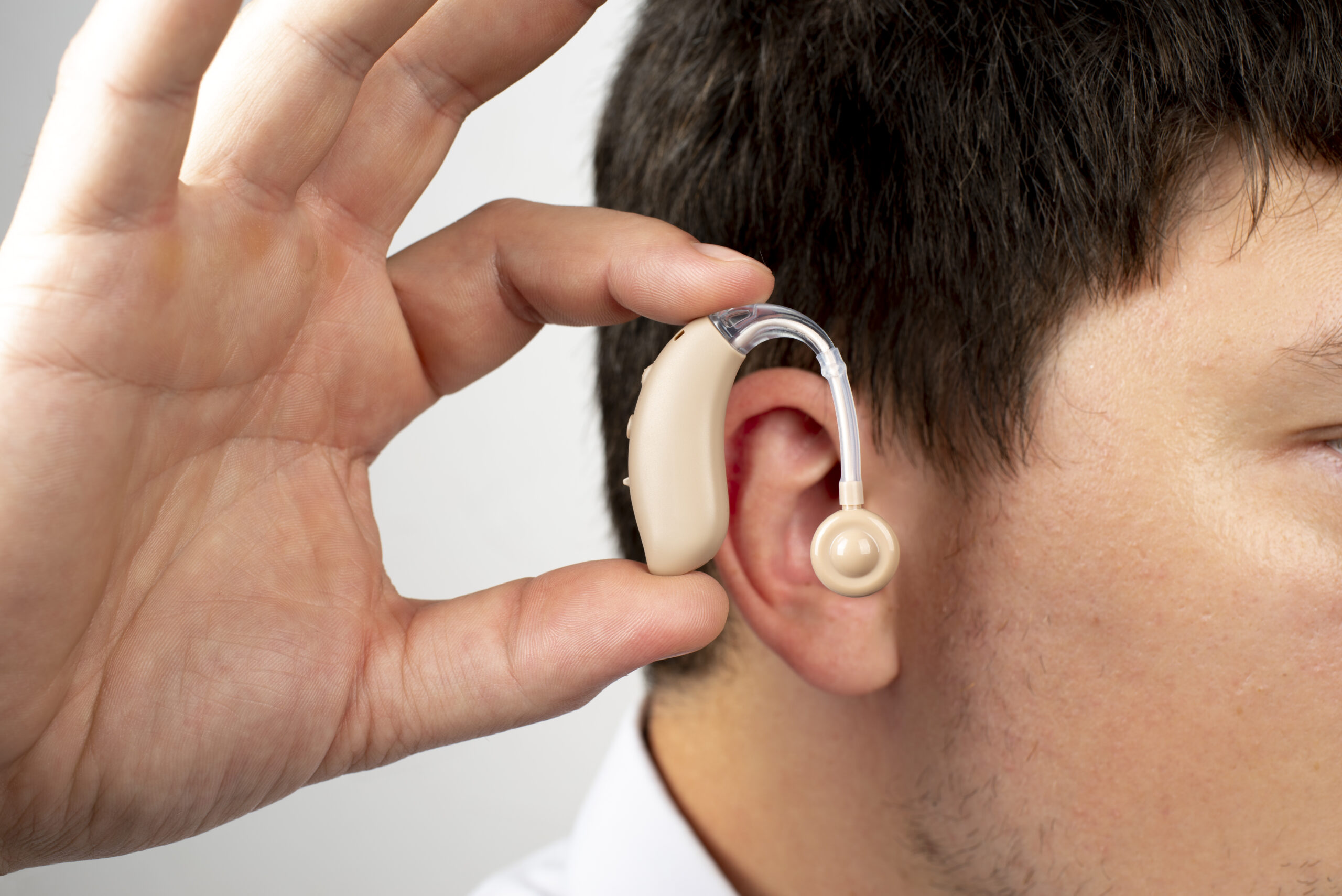Table of Contents
Hearing loss can be a life-changing condition, impacting your ability to communicate, enjoy conversations, and even engage in daily activities. Fortunately, hearing loss treatment has evolved significantly, offering numerous solutions to restore hearing and improve quality of life. Whether you’re experiencing mild hearing difficulties or profound hearing loss, early intervention is key.
This article will explore the various hearing loss treatments available, focusing on the most effective methods and how they can help improve hearing.
What is Hearing Loss?
Hearing loss refers to the partial or complete inability to hear sounds in one or both ears. It can occur suddenly or gradually, depending on the underlying cause. There are three main types of hearing loss:
- Sensorineural hearing loss: This is the most common type, caused by damage to the inner ear or the auditory nerve. It is often permanent and may result from age, exposure to loud noise, or certain medical conditions.
- Conductive hearing loss: This occurs when there is an issue in the outer or middle ear, such as fluid buildup or earwax blockages, preventing sound from reaching the inner ear.
- Mixed hearing loss: A combination of both sensorineural and conductive hearing loss, affecting both the inner ear and outer/middle ear structures.
Symptoms of Hearing Loss
Common symptoms of hearing loss include:
- Difficulty hearing conversations, especially in noisy environments.
- Frequently asking people to repeat themselves.
- Ringing or buzzing in the ears (tinnitus).
- Feeling of fullness or pressure in the ears.
- Muffled sounds or a sense that people are mumbling.
If you experience these symptoms, it’s important to seek professional help for a proper diagnosis and treatment plan.
Effective Hearing Loss Treatment Options
There are a range of treatments available, depending on the cause and severity of hearing loss. These treatments aim to restore hearing, improve communication, and enhance overall quality of life.
Aural Rehabilitation and Therapy for Hearing: Non-Invasive Solutions
Therapy for hearing plays a crucial role, especially for those who are newly diagnosed with hearing loss or those adjusting to hearing aids or assistive devices. Some therapies available include:
- Auditory Training: Auditory training helps the brain relearn to process sounds more effectively, especially after fitting hearing aids or cochlear implants. It improves skills like speech understanding and sound discrimination, enhancing overall listening and communication.
- Speech therapy: Aimed at improving speech recognition and communication skills, especially for those who may have trouble understanding spoken words. This is helpful for those who have hearing loss affecting their ability to recognize speech in conversation.
- Cognitive therapy: Cognitive-behavioral therapy (CBT) can assist individuals with hearing loss in managing the emotional challenges associated with it, such as anxiety or depression. Therapy can help you cope with the social impact and improve your psychological well-being.
Hearing and Assistive Devices
One of the most common treatments for hearing loss involves hearing aids and other assistive listening devices that amplify sound to improve everyday hearing and communication.
- Behind-the-ear (BTE) aids: Worn behind the ear, suitable for various levels of hearing loss.
- In-the-ear (ITE) aids: Smaller devices that fit inside the ear for a more discreet option.
- Custom hearing aids such as Completely-in-canal (CIC) aids: The smallest type, fitting deep into the ear canal.
For severe hearing loss, cochlear implants may be recommended. These devices bypass damaged ear structures and directly stimulate the auditory nerve, providing the perception of sound when hearing aids are no longer effective.
Additionally, assistive listening devices like FM systems, hearing loops, and TV streamers enhance sound clarity in specific environments, such as noisy rooms or while watching television.
Ear Medication for Hearing Loss
For some types of hearing loss, especially temporary hearing loss due to ear infections or inflammation, medications can help. Some common ear medications include:
- Steroids: These may be used to treat sudden sensorineural hearing loss (SSHL) by reducing inflammation and swelling in the inner ear but there’s no cure to reverse ototoxic damage.
- Antibiotics: These are used if the hearing loss is caused by ear infections.
- Diuretics: For patients with Meniere’s disease, which affects the inner ear, diuretics can help manage fluid buildup.
Surgical Treatments for Severe Hearing Loss
For more severe cases of hearing loss, surgery may be necessary. There are a few surgical treatments available:
- Cochlear implants: This is a common solution for individuals with severe sensorineural hearing loss. Cochlear implants are surgically placed in the ear to directly stimulate the auditory nerve, bypassing the damaged hair cells in the inner ear.
- Bone-anchored hearing aids (BAHA): These devices are surgically implanted into the skull to help with hearing by directly stimulating the cochlea. They are an excellent option for people who cannot use traditional hearing aids.
- Tympanoplasty: This procedure is used to repair a perforated eardrum, which can improve hearing in those suffering from conductive hearing loss.
Surgical treatments for hearing loss are highly specialized. At The Hearing Centre, we offer detailed consultations to assess your individual condition and determine the most suitable treatment options. If surgery is required, we will refer you to a trusted specialist to ensure you receive expert care and support throughout the process.
Why Choose Us for Your Hearing Loss Treatment?
At The Hearing Centre, we are committed to offering personalized and comprehensive hearing care. We understand that each person’s hearing needs are unique, which is why we tailor our treatments specifically for you.
Here’s why you should choose The Hearing Centre:
- Comprehensive diagnostics: We provide thorough hearing assessments to evaluate the extent of your hearing loss.
- Personalized treatment plans: Whether it’s hearing aids, therapy, or surgery, we work with you to develop a treatment plan that fits your needs, lifestyle, and preferences.
- Cutting-edge technology: We use the latest advancements in hearing aids, cochlear implants, and assistive devices, ensuring you get the best possible solutions.
- Continuous support: From fitting hearing aids to follow-up care, we ensure that you’re supported throughout your hearing journey, with regular checkups and adjustments to optimize your hearing.
Coping with Hearing Loss: Lifestyle Changes and Support
Coping with Hearing Loss
Adjusting to hearing loss can be challenging, but there are many ways to cope and manage it. Here are a few strategies:
- Communication strategies: People with hearing loss can benefit from strategies like speech reading (lip reading), using visual cues, and asking for clarification when needed.
- Assistive devices: Use assistive devices like TV streamers or FM systems to improve listening in different environments.
- Social support: Joining support groups or seeking counseling can help reduce feelings of isolation. Talking to others who have experienced hearing loss can provide emotional support and practical tips.
Conclusion
At The Hearing Centre, we provide comprehensive treatment options for those who are experiencing hearing loss. We are here to offer personalized care and the latest hearing technologies. Don’t wait for hearing loss to affect your quality of life. Contact us today for a consultation and start your journey to better hearing.
Frequently Asked Questions
Treatments in Singapore include hearing aids, cochlear implants, speech therapy, cognitive therapy, and surgical treatments for severe hearing loss.
Protect your ears from loud noises, wear ear protection, and get regular hearing checkups to catch early signs of hearing loss.
While some types of hearing loss can be treated and managed, such as conductive hearing loss, sensorineural hearing loss is typically permanent but can be managed with devices like hearing aids or cochlear implants.
The best hearing aid depends on the severity of your hearing loss, lifestyle, and personal preferences. Our team at The Hearing Centre will guide you to choose the right device for your needs.
You can improve hearing with hearing aids, assistive devices, and therapy for hearing, such as speech therapy or cognitive therapy.
Cochlear implants are recommended for those with severe hearing loss who do not benefit from hearing aids. Our experts will assess your suitability.
Costs vary depending on the treatment. Hearing aids prices are depending on the technology level and features, while cochlear implants may cost you more as it involves surgical procedure by specialist doctor. Visit our clinic today to learn more!
If you’ve been diagnosed with hearing loss, we recommend having your hearing tested every 1 to 2 years. Even if your hearing is currently normal, it’s still advisable to have a hearing test at least once every 4 years to closely monitor any changes over time.
Yes, hearing loss can lead to isolation, depression, and anxiety, which is why it’s important to seek support and treatment.
Recovery time typically takes 6-8 weeks, with gradual improvements in hearing after implantation.

Evlin is passionate about helping people with hearing loss. With years of experience in audiology, she has diagnosed and treated a wide range of hearing conditions across all age groups. She is accredited to conduct comprehensive hearing assessments and provide treatments for patients from newborns to the elderly. Committed to personalized care, she strives to empower patients to fully engage in life with better hearing.
Designation: Clinical Audiologist
Qualification: Bachelor of Health Science (Honours) (Audiology), University of Science Malaysia
Membership: .Society of Audiology Professionals in Singapore (SAPS)
